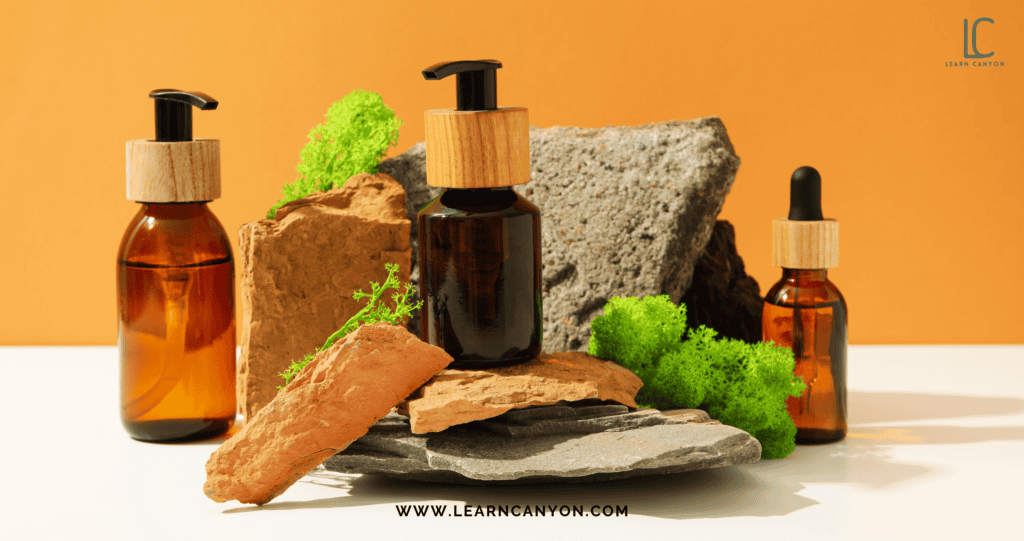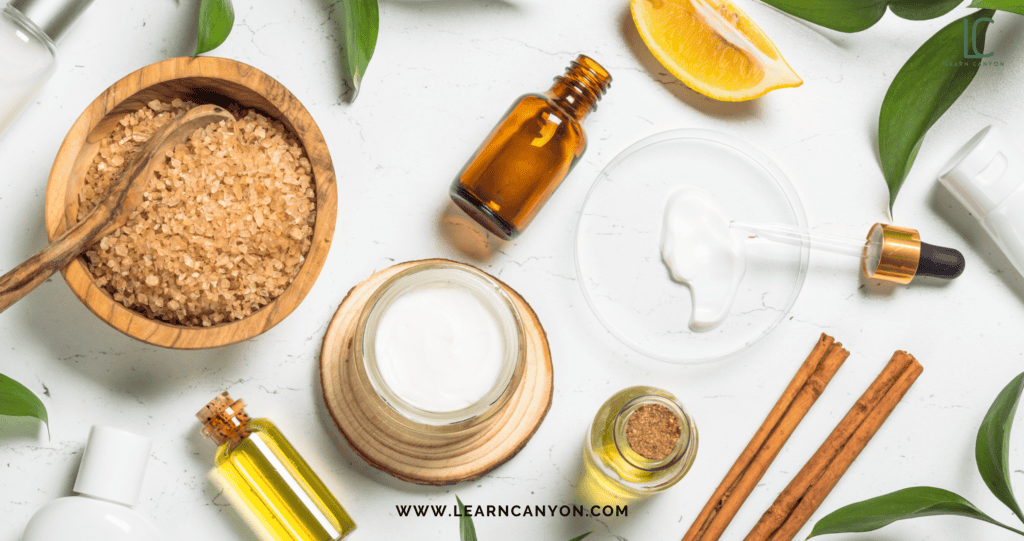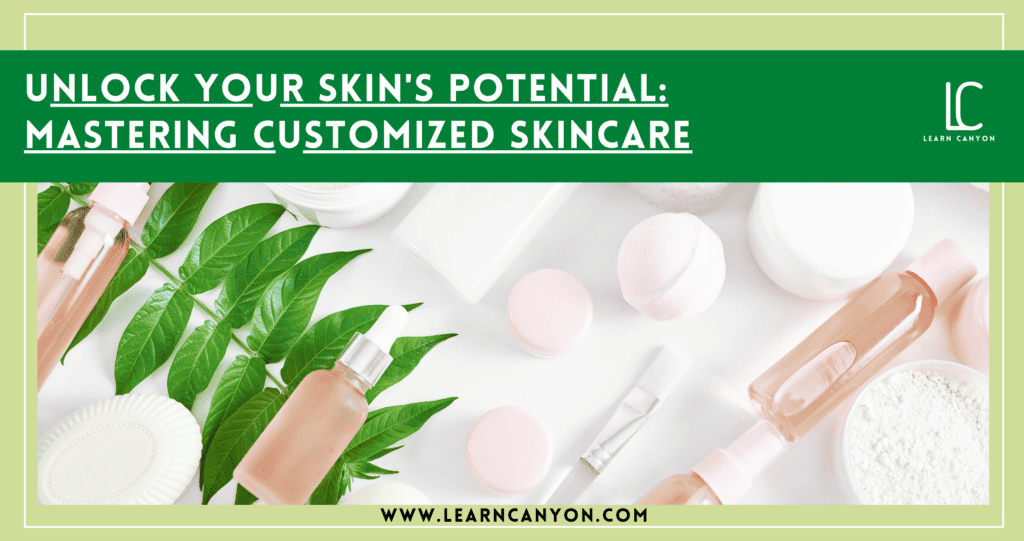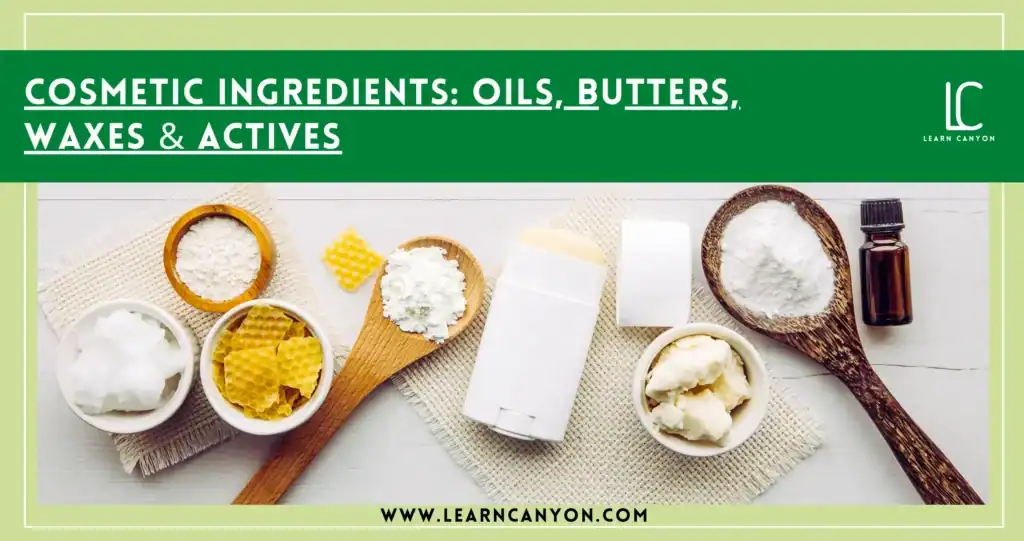The future of beauty looks promising with the emergence of customizable skincare. With more and more people becoming aware of their individual skin needs, the demand for personalized skincare products is increasing.
Customized skincare allows customers to tailor their beauty products to get exactly what they need for their skin type. From personalized serums to customized cleansers, this new trend is revolutionizing the way we approach skincare.
The global customized skincare products market is predicted to be worth USD 26.20 billion in 2022, with a compound annual growth rate (CAGR) of 8.0% from 2023 to 2030.
The introduction of technology and the next-generation personalised beauty industry, as well as the increased prevalence of skin and lifestyle disorders, will drive market expansion in the future years.
According to a February 2021 article published by John Wiley & Sons, Inc., nearly one-third of the global population struggles with skin illnesses such as acne, dermatitis, ichthyosis, and pemphigus.
This circumstance motivates customers to seek future personalization remedies for their skin problems.
In this article, we’ll explore the benefits of customized skincare, the emerging trend of customizable skincare products to an individual’s specific concerns and how it can help you achieve your skincare goals.
Understanding customized skincare
The majority of items have a single mass-produced formula. Even two people with dry skin can have vastly different complexions and demands. Over-the-counter products do not take into account a person’s specific skincare requirements.
However, customized skincare products exist. Dermatology compounding is a practice that goes hand in hand with personalised skincare. Compounding allows patients to acquire bespoke, one-of-a-kind skincare products that contain the exact chemicals that will work best for them.
So, you might get curious about what dermatology compounding is!
Dermatology compounding enables your chemist to develop personalised dermatological treatments by combining separate ingredients to create a medication matched to your specific needs.
Everyone has a different skin type and preferences, and compounding allows your doctor and chemist to collaborate to produce the finest solution for your skin care needs while retaining all of its effectiveness.

Traditional Skincare Vs. Customized Skincare
Traditional skincare frequently includes so many preservatives that the goods survive for at least 30 months – that’s 2.5 years! It contains BOTH preservatives and additives that are intended to magically remove undesirable odours and paint and give the product the right feeling when used. They consist of two main problems;
- Traditional skin care disrupts the skin’s microbiota.
- Traditional skin care doesn’t ensure the efficacy of active substances.
There are hundreds of alternatives in department shops and online, ranging from moisturisers, lotions, and face washes to exfoliators and masks. The problem is that no two skin types are alike.
That’s why, Clinics, chemists and even some store brands have entered the market with customized skincare products. Cosmetic businesses now know exactly what each client needs through questionnaires, consultations, and even artificial intelligence. Clinics build customised products depending on skin type, skin requirements, and even allergies to achieve the best outcomes.
Science Behind Personalized Skincare
Scientific discovery on customized skincare can be determined based on specified genotypic features, anatomical organisation, and compartmentalised sensitivity to diverse extrinsic ageing agents, and ethnic skin phenotypes.
These variances are not only accountable for differences in skin efficiency following exposure to harmful conditions, but they can also alter drug absorption, sensitization, and other long-term repercussions.
Individual skin function and, in particular, ethnic skin type are currently thought to impact the future of clinical and pharmacologic therapies as a foundation for personalised skincare.
The exact instances of science in personalized skincare are;
- Biotech-based compounds, for example, are being introduced to the customized skincare sector by science. These components are derived from a biotech method that employs microorganisms and natural resources such as algae and plants to produce potent skincare molecules.
For example, customized skincare products containing algae-derived compounds are becoming increasingly popular due to their capacity to moisturise and soothe the skin, making them an excellent alternative for anyone with dry or sensitive skin.
- Furthermore, research is facilitating the development of innovative cosmetic delivery methods, which improve the potency of personalized skincare products. Nanotechnology is one such delivery mechanism.
Nanoparticles are sufficiently small to penetrate the skin’s layers, allowing for improved absorption of active substances. This means that personalized skincare solutions can transfer active substances straight to skin cells, resulting in superior outcomes.
- Another important method science is powering the future of the custom skincare industry is through the introduction of non-invasive and non-surgical therapies.
LED treatment, for example, is a new trend in the skincare sector. LED lights may penetrate the skin and stimulate collagen formation, which aids in the reduction of fine lines and wrinkles, making it an excellent anti-ageing approach. LED therapy can also help to reduce inflammation and acne, making it a great therapy for acne-prone skin.
Benefits of customized skincare
A Single Mold Does Not Fit All
You are a person with your unique biochemistry, and your skin is no exception. Because of tiny chemical and genetic variances in the body, what works for one patient may be completely wrong for you.
Compounding customized skin care solutions avoids this worry by recognising and targeting your skin’s skincare issues.
Reduced Allergic Reactions
Compound skin care is essential for allergy sufferers for a variety of reasons. To begin, your chemist can assist you with identifying your allergies. Once you have a better idea of what the problematic chemicals or substances are, he or she can reformulate your favorite products without the problematic element.
Less Water, More Product
Commercial companies may “water down” substances as well, leaving you paying for a product that is water. While water is generally not harmful to your skin (in fact, it is required in many beauty care products), using too much of it results in a product that isn’t always as potent as it should be.
When developing customised skincare solutions, chemists might avoid using commercial formulae and instead incorporate only the chemicals required for use. As a result, cosmetics with a more uniform mix of components and/or medicinal and active compounds are produced. When it comes to skincare concerns including wrinkles, rejuvenation, breakouts, and dry skin, more balanced solutions frequently produce greater results.
Customization also allows chemists to de-concentrate a formula with a gentler balance of chemicals, resulting in outcomes that are free of irritation, redness, or adverse effects.
Cosmetologist – Directed Solutions
The cosmetologist evaluates and assesses the patient’s condition, and then writes a prescription for treatment measures tailored to the patient’s particular requirements.
Every prescribed skin care product (and its ingredients) is cosmetologist-directed, evidence-based, and cosmetologist-approved.
The compounding chemist then creates the prescription from the ground up. Starting with the fundamental ingredients, the pharmacy adds ingredients one by one until the proper balance and dosage format is achieved.
It can be changed as the patient’s skincare status changes due to improvement, decline, or even just age. This results in a higher standard of care and dramatically improved skin maintenance throughout time, regardless of how long or short the desired therapy is.

How Customized Skincare Works
- Skin analysis and evaluation
The questionnaire built up by formulators and dermatologists examines your four Factors:
- how your skin behaves naturally,
- what you expose it to,
- how you treat it, and
- the positive improvements you desire to see.
They will ascertain your precise skin requirements to gather all of your skin and lifestyle insights through their intelligent survey to create the ideal recipe to provide your skin with all it requires.
- Identifying skin type and specific concerns
Personalised skincare evaluation understands and considers skin type (oily, dry, sensitive, combo), skin issues (acne, ageing, dark spots), and lifestyle (diet, stress, sleep habits). Based on these characteristics, a customized skincare routine can be developed to address specific skin concerns while yielding desired results.
- Formulating customized skincare products
As most customization analysis is done online these days, the skin AI ® algorithm builds your ideal skincare system—four products that operate in sync to achieve numerous objectives.
Formulators begin working on your formula when you provide them with all of your skin information. They construct a special blend of all the necessary elements with a flick and a swish to help you accomplish and face all of your personal goals, issues, and interests.
During the formulation of customizable cosmetics, skin moisture content, sebum content, firmness and elasticity properties, skin thickness, transepidermal water loss, skin pH, and a photo study of the face with UV and visible light can all be measured using objective and reproducible dermal biometric instrumentation techniques.
Formulating personalized skin care products allows you to manage the individually added active chemicals, the diluents, the dermal penetration rates, the surfactant systems, and the product’s stability. That custom skin care product is created for an individual user and is only supplied in a three-month or a few months to prevent the loss of active ingredients.
Technologies Shaping Customized Skincare
An emerging trend of the technological approach of customizable skincare products tailored to an individual’s specific needs and concerns;
1. Artificial Intelligence (AI)
- With the advent of artificial intelligence, smart technology, and machine learning, a growing number of cosmetic businesses are embracing skincare personalization and providing their customers with knowledge-based beauty routines.
- AI advancements have enabled users to experience cutting-edge skin analysis with the simple addition of a camera. When enabled, the AI immediately identifies and evaluates the user’s skin, assessing up to 14 distinct skin issues such as moisture levels, acne presence, and a variety of other characteristics.
This advanced software then analyses the data and portrays the skin’s state objectively for both the dermatologist’s and the patient’s benefit. It provides a record-breaking degree of transparency, presenting the skin’s condition objectively, clearly, and understandably.
This cutting-edge AI technology not only speeds up the skin diagnosis procedure but also aids in the formulation of precise and personalized skincare suggestions.
- The following are some of the benefits of AI combined with Augmented Reality:
- Display women’s custom makeup ideas by analysing colour, style, and other people’s similar facial characteristics.
- Assist women in virtually trying on makeup with their faces, and analyse beauty styles to forecast social media popularity.
- Improve personalized cosmetics and makeup products
- Enhance personalized cosmetic surgery.
- Improve the reconstruction of the face.
2. 3D printing for personalized skincare products
- 3D printing is an industrial technique that includes piling elements on top of each other to create a three-dimensional product. To build the object, 3D printers need digital input such as computer-aided design (CAD) files. The printer understands the design and layers the thing together, utilising materials ranging from plastic to metal to living tissue.
- It enables skincare firms to mass-produce customised cosmetics. This technique allows for the fabrication of exact formulas that may be adjusted to an individual’s specific needs.
Furthermore, because the printing process is mechanised, 3D printing provides for higher consistency in formulation and lowers the likelihood of defects or mistakes.
- This sort of technology can be used to develop beauty items that are suited to the needs and preferences of specific customers, as well as a wide selection of unique designs. The possibilities for 3D-printed cosmetics are enormous.
3D printing, for example, can be used to produce detailed, personalised designs for lipsticks, eyeshadows, and other goods. It can also be used to produce complicated textures and effects like glitter and shimmer that are difficult to generate with traditional approaches.
3. Advanced data analytics for better customization
- Data science, particularly predictive analytics and consumer analytics, is critical in assisting cosmetics manufacturers in making marketing decisions and improving the customer experience.
- Companies can utilise big data analytics to help clients locate skincare products that perfectly suit their unique interests without the hassle of lengthy testing periods. The Sephora Visual Artist, for example, may analyse consumer traits and offer colour colours that complement their features. Fenty Beauty, a cosmetic firm that values inclusion, provides options through their Shade Finder Quiz, which asks users to recognise models who have similar skin tones as theirs.
- Consumers, on the other hand, must be conscious of their demands to supply the necessary data to assist algorithms in providing the best possibilities, whether that data is informed by a consumer’s ingredient sensitivities, ethical preferences, or other specialised elements.
To delight customers, analytics must give excellent colour-matching targeted product recommendations, particularly for skincare and haircare products. Data and analytics can be used by beauty brands to optimise this process by collecting information to uncover underlying problems and build solutions.
Role of Customized Skincare Routine
If you are concerned about skin damage, especially obvious indications of ageing, one of the most significant actions you can take is to establish a customized skincare programme.
Below are the points for a personalized skincare routine;
1. Customized cleansers and toners
Your customized skincare routine begins with a basic regimen and products designed specifically for your skin type (oily, dry, combo, etc.).
Begin with a custom-made cleanser that has been recommended by the dermatologist based on your skin type, texture and condition, then a custom-made exfoliation, and finally a custom-made moisturiser with SPF for the day and a moisturiser without SPF for the night.
Alongside, personalized toners contain antioxidants and skin-repairing components (hyaluronic acid, glycerin, ceramides, and fatty acids) that will not only remove the last remnants of makeup but will also deliver advantages unique to your specific skin conditions. Apply toner after using a cleanser.
2. Tailored Serums & Masks
- Customized Serums, on the other hand, are highly potent formulations containing a high concentration of active substances such as vitamin C, niacinamide, or retinol.
They can be an excellent addition to skincare regimens. The custom-made serum’s kind and strength will depend on your unique concerns.
The Face serum is tailored to offer the skin a regeneration boost and a healthy glow. Light and nutrient-dense, it provides skin with a regeneration boost and a healthy glow. It successfully prevents free radical damage and promotes a healthy, glowing complexion.
Use serums after exfoliation and toners.
- A customized face mask or other facial therapy is perfect for targeting a specific need or issue, such as increasing hydration, absorbing excess oil, or reducing redness. Use a mask after exfoliation.
3. Personalized moisturizers
- For oilier skin types; choose personalized moisturisers containing salicylic acid and niacinamide. Mattifying moisturisers, which absorb excess oil and smooth the appearance of your skin, can assist both oily and acne-prone skin.
- For use on dry skin; hydrating components are a good choice for custom-made moisturisers for dry skin including ceramides, glycerin, panthenol, and hyaluronic acid. Avoid AHA/BHA-containing cleansers and stick to gentler ones, maybe those comprising polyhydroxy acids (PHAs).
- For rosacea-prone skin; choose basic personalized moisturisers or those with rosacea-friendly components.
If you are facing difficulties in formulating customized cosmetics, then selecting the extracts that work best for your product line and incorporating them into your customer’s skincare regimen are both simple at Learn Canyon.
Our cosmetic formulation school offers courses in a Diploma in organic skincare & haircare formulation, an advanced certificate in organic facial creams and lotions, and a certificate in organic skincare formulation that will help you become an expert formulator in developing customized cosmetics.
Challenges And Limitations
- Time
Customers want personalised products, but they don’t want to wait long for them to arrive. Manufacturing and delivering individualised items promptly to fulfil consumers’ wants can be costly. Using local suppliers or introducing new technologies can be a viable alternative for saving money and time.
- Manufacturing
This is one of the biggest limitations. Cosmetics firms have gotten used to mass generating their products in big amounts and shipping them to a single central place is difficult. Now, there is a need to make things in smaller batches and distribute them to individual clients. The logistics of making and distributing personalised products must not be disregarded.
- Supply-chains
Most firms use a single supply chain for mass production; but, when it comes to personalised beauty products for individual customers, businesses should use several supply chains that provide flexibility to cater to different demand patterns.
Establishing and sustaining solid supplier connections will also be required. While independent supply chains are more expensive and time-consuming in the short term, they can cut lead times and waste in the long run.
- Safety Management
Customised cosmetics manufactured on the spot by buyers or vendors have various safety hazards, necessitating a preventive strategy for their safety management.
Heavy metals and microbiological contamination were usually found in customised cosmetics.
Transferring cosmetics to new containers throughout the manufacturing process poses a considerable danger of cross-contamination, and heat treatment is critical for minimising the amount of germs in the products.
For example, cosmetics prepared with heat and no transfer had microbe counts ranging from not identified to 440 CFU/ml. The high pH of the samples (>pH 10) did not ensure the microbiological safety of the recently manufactured cosmetics (with a rinse-off product having 2,830 CFU/ml and a pH of 11.2).
Final Thoughts
Enhancing and preserving your skin should not be time-consuming and expensive, with unsatisfactory results. Customized skincare is an excellent approach to managing present skin concerns while also preventing future damage.
Therefore, we at Learn Canyon, believe in customized skincare and are much more than just a formulation school. Learn Canyon provides advanced-level skincare and haircare formulation course where expert formulators will accompany you throughout your formulation training journey to help you build A-class customised skincare products. So, what are you waiting for? Contact us to enroll!











